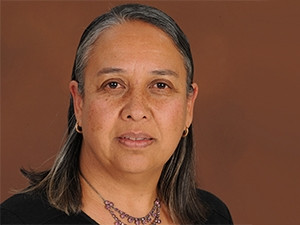CIOs need to be ready rather than get ready. The digital revolution will be led by CIOs and users/consumers, as they translate supply into demand. CIOs will lead teams and business in digital adoption.
So said Luci Abrahams, Director: LINK Centre at Wits University, when we caught up with her at the Wits digital innovation precinct, Tshimologong, to talk about its CIO programme and digital innovation.
"A few university educational programmes are designed specifically for the CIO and CIO teams and more advanced training programmes are required to build on these foundations. Wits University offers a Professional Certificate in CIO Practice, a multi-disciplinary programme incorporating knowledge from the fields of engineering and technology innovation, IT management and benefit realisation, IT strategy and leadership. From 2017, the programme will comprise three levels: an introductory level focusing on the fundamentals of IT innovation and management, an intermediate level focusing on IT strategy and benefit realisation, and an advanced level, which includes the Internet of things, cloud computing, digital innovation, smart cities/smart grid, cyber security, big data analytics and other topics in digital economy evolution. The programmes include lectures and assignments at the Wits digital innovation precinct, Tshimologong. I like to say that teaching and learning about digital innovation should take place in a digital innovation space," she explained.
Abrahams discussed how the role of the CIO has changed.
"The roles of senior management in all C-level fields is on a constant change trajectory, adapting to advances in knowledge, changes in technology and emerging global trends. Historically, the head of IT, now the CIO, was preoccupied with networks, devices, procurement, strategic alignment of IT with business, and IT budgets. Now the CIO is concerned with digital leadership, meaning constant innovation, translating analogue services into value-added digital services, building digital marketing in the business/government, creating a continuous flow of digital transactions, creating future marketing and business opportunities from big data analytics," she explained.
"The CIO will decide or recommend whether to introduce 3-D printing depending on the nature of the business, whether to use locally available 3-D printing hubs, or whether to buy standard IT components from mainstream suppliers. The CIO will spend more time analysing business risk, whether the CIO be in government or in a commercial firm. The CIO will spend more time considering complex migrations, such as moving data from in-house servers to cloud computing; quantifying the business value generated from IT spending; setting up arrangements and applying due diligence for data privacy. In short, the CIO has become an innovation facilitator, not just an IT manager and requires a multi-disciplinary CIO team with IT, business and legal knowledge. This kind of CIO team can add significant value to business, through advancing business efficiency, and extending the reach of the business into local and global markets," she continued.
She advised CIOs to engage in the research needed to keep abreast of the digital revolution.

"Continuous applied research relevant to the particular firm and the particular sector is required to participate and lead in the digital revolution. CIOs can attend executive briefing sessions, such as those offered at the regular CIO Council of South Africa events. CIOs must also prepare themselves and their teams through integrated training offerings, combining industry-oriented programmes such as those offered by ISACA (IT risk, IT governance, cyber security), as well as more comprehensive university-based programmes, which include a suite of content as well as training in applied research approaches relevant to the particular sectors from which participants come. Both the professional industry programmes and the university-based programmes utilise case studies for effective learning and application to the real world of the CIO," said Abrahams.
Since she deals a great deal with innovation, we asked her about bots and what the future holds. She chuckled and had this to say: "Robots will likely generate great interest and become ubiquitous in homes and some governmental institutions, but they are unlikely to replace people in the job market as a whole. While they will certainly replace some types of jobs, robots can do jobs that people cannot do (work in high temperatures), or no longer want to do (work in dangerous environments), or operate where there are insufficient numbers of trained people to do the job (health clinics). For example, robots are unlikely to replace teachers and nurses in the next 50 years or more. They can and will do certain jobs in the health environment, such as 'looking after' aging patients by giving them reminders and being 'robotics companions', or assisting with very basic diagnosis and other activities."
Abrahams will be chairing the ITWeb Digital Economy Summit 2016 in October. This event will demystify and simplify what it means to go digital.
Share